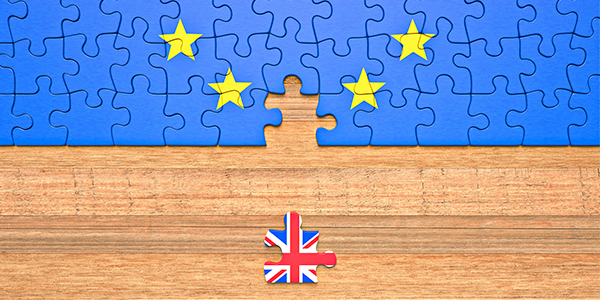
Enter your shipment number.
Brexit is Official
30 January 2020

On 23 June 2016, UK citizens voted to leave the European Union. Beginning Friday, 31 January 2020, the United Kingdom will exit the EU as concluded by the European Parliament’s ratification of the Withdrawal Agreement Bill. The Withdrawal Agreement, approximately 600 pages, covers:
- The division of assets, liabilities, and outstanding debt
- Border, trade, and customs arrangements
- Citizens rights
- The law and methods for resolving disputes
- Protocols on Ireland/Northern Ireland, Cyprus, and Gibraltar
- Governance and other separation issues
This marks a new phase for the UK as it enters an 11-month transition, which ends 31 December 2020, where the United Kingdom will negotiate its future relationship with Europe. This will also provide citizens and businesses time to adapt.
What Will Happen After 31 January 2020
The UK will no longer be represented in EU institutions; however, it will continue to follow EU rules and contribute to the EU budget. Negotiations between the UK and the EU will commence, with a possible transition extension period of up to two years, if both sides agree by 1 July 2020. The prime minister has promised it will not be extended.
During this time there will be no changes to the terms for trading with the EU or the rest of the world unless the rules change for the whole of the EU. This means EU rules for customs, VAT, and excise will continue to apply to the movement of goods and trade for this limited time. There will be no new customs procedures at present.
Transitional Simplified Procedures
Registration and use of Transitional Simplified Procedures (TSP) for imports from the EU are currently suspended during the transition period. If you applied for this service, please keep your paperwork safe. Postponed VAT Accounting is not available during the transition period.
View letters about trade agreements, issued by the UK Government to all VAT registered traders.
Northern Ireland
Northern Ireland will be outside the EU though continuing to enforce the EU’s customs code at ports. The Republic of Ireland will remain inside the EU. The UK government will provide more information about customs processes for Northern Ireland soon. At present, Northern Ireland’s trade relationship is not expected to change during the transition.
What Will Happen After 31 December 2020
Trade between the United Kingdom and the EU will change, including new customs arrangements. We’ll provide more guidance as negotiations progress during the transition period.
